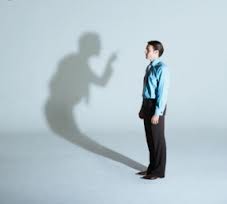Hopeless Problems, Perfect Answers in Bipolar Disorder
It’s difficult to discuss depression because that word describes a whole spectrum of experiences. People often say, “I’m so depressed,†when they mean they’re disappointed, frustrated or sad. I got a ‘C’ on my midterm – I’m so depressed. Then there’s the kind of depression that occurs with loss, what we might think of as part of the grieving process.   Further along the spectrum and we have the clinical disorder with true signs of depression. While these various experiences have some features in common, they are very different psychological states of mind.
Many of my clients over the years have suffered from personality disorders, often with severe depressive features.   At some unconscious level, they all felt as if they were so damaged that their psychic life was a catastrophe, a kind of post-apocalyptic wasteland, and there was no hope that anything could be done about it. When I was able to understand this and could articulate it to them, it brought a kind of relief:  until then, that feeling of being damaged-beyond-repair was so agonizing as to be intolerable, impossible to acknowledge; the fact that we could think about it together made it seem a little less hopeless, at least for a moment.
Often when the hopelessness became unbearable, they’d take flight from it. One day, a client might come in so depressed he or she was practically mute; the next, giddy, talkative and full of optimism. They often made no mention of the prior depression, as if it were a thing of the past. A sudden industriousness had come over them and they began to tackle each and every item on their to-do list. They were going to do everything, change everything, conquer the world. When they were in this state of mind, I often had the feeling that they were keeping me at an emotional distance; if I said anything that called this new enthusiasm into question or tried to remind them of their recent depression, they could easily turn against me and the treatment, as if now I were the problem.
Continue "Hopeless Problems, Perfect Answers in Bipolar Disorder"

